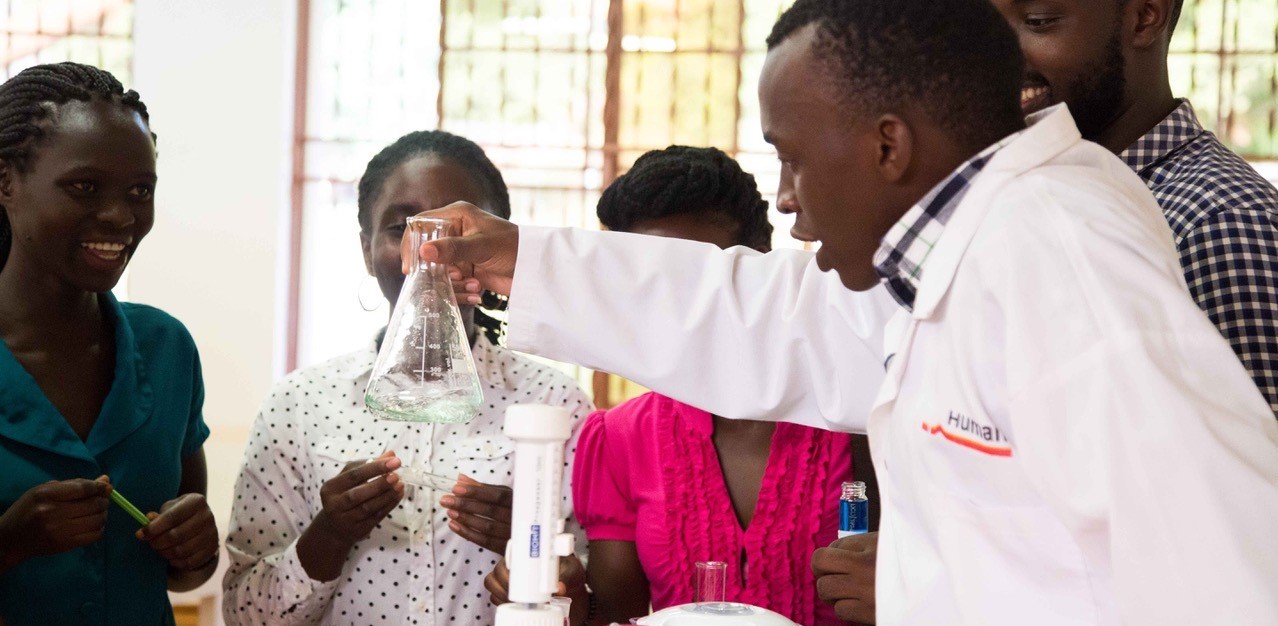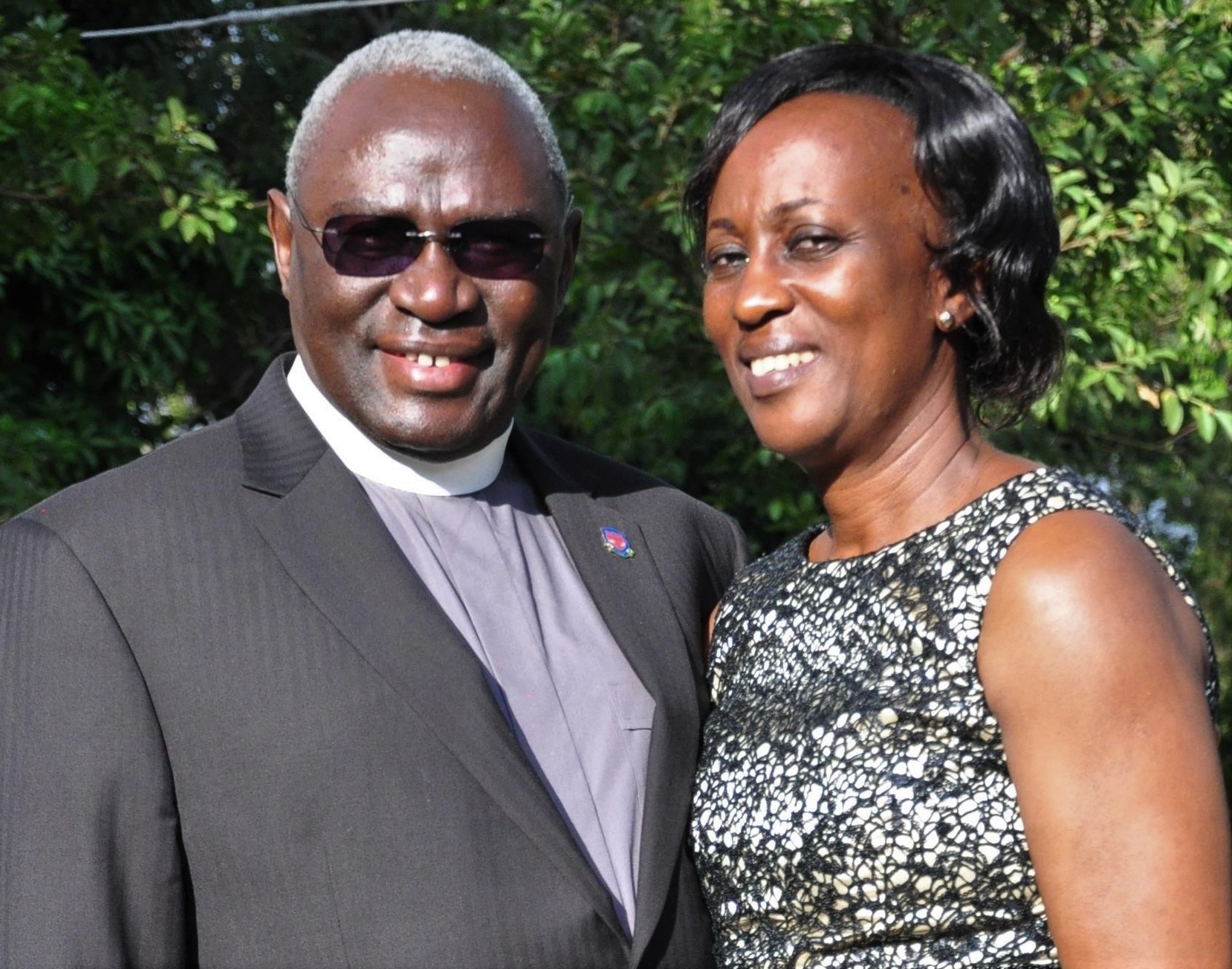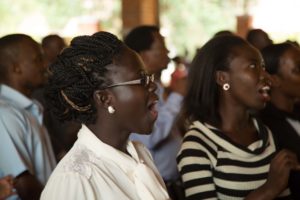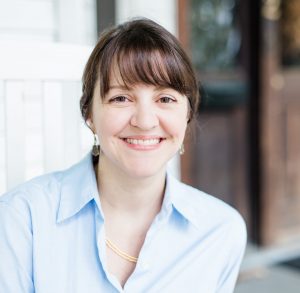
Vice Chancellor of Uganda Christian University to Visit ADOTS. Dr. John Senyonyi traveling to churches in early April.
“It is important to recognise that education is the forming of minds and lives that eventually manage the affairs of nations.”
– Dr. John Senyonyi, Vice Chancellor, Uganda Christian University

Drs. John and Ruth Senyonyi
Dr. John Senyonyi was passing through the international airport at Entebbe, Uganda, when a young woman at the immigration checkpoint beckoned profusely for him to come over to her. Hesitating a bit for fear of cutting in line, he stepped over to her station. She was eager to introduce herself to him as an alumna of Uganda Christian University, where Dr. Senyonyi has been the Vice Chancellor (President) since 2010.
“Two years earlier, she applied for a job with the Civil Aviation Authority,” says Dr. Senyonyi. “When she, with a number of other UCU alumni, turned up for the interview, the interview panel made it clear that they preferred UCU graduates and wanted all the sixteen they were hiring to come from UCU!”
Although Dr. Senyonyi says he’s sure the airport agency also hired from other universities, it’s clear that graduates of UCU are making an impact in all spheres of work across Uganda and Africa: They’re employed in government and non-government organizations or self-employed, and several graduates are members of the Ugandan Parliament and Cabinet; some international students are scattered across Africa and the world.
“The First Lady of Uganda, who doubles as Minister of Education in the country, herself graduated from UCU with a Master in Organisational Leadership degree in 2015,” says Dr. Senyonyi.
As far as employability, he says a recent survey found UCU’s graduates beat all other universities except the oldest public university in the country – which is at least three times larger.
“Many in the country have noted the difference in UCU graduates, though some may not understand the cause for it,” he says.
Dr. Senyonyi firmly believes that difference is due to the mission of a complete education at UCU. While secular universities focus solely on intellect and skills, UCU is also equally concerned with a student’s spiritual, emotional, physical, and social education.
“We intentionally structure life at UCU to achieve this. The Institute of Faith, Learning and Service has oversight for ensuring that our faith is reflected in the curriculums and other services of University life,” says Dr. Senyonyi. “That way the student is being formed on every side to step into the secular world well able to live out their faith.”
 Life at the university centers around chaplaincy work, with regular worship services during the week – well-attended by students even though attendance is not required. All UCU students take eight foundational courses, including Old & New Testament, Christian Worldview, and Christian Ethics.
Life at the university centers around chaplaincy work, with regular worship services during the week – well-attended by students even though attendance is not required. All UCU students take eight foundational courses, including Old & New Testament, Christian Worldview, and Christian Ethics.
“Any participation in the education enterprise has a potentially invaluable impact on the nations of Africa,” says Dr. Senyonyi. “I personally mentor students on a one-one basis because I am convinced about this.”
In early April, Dr. Senyonyi and his wife, Dr. Ruth Senyonyi, will be visiting parishes in the Atlanta area of ADOTS, sharing about the incredible work to which UCU is committed and how our churches can partner with them – including the launch of a medical school. The couple will visit Christ Church Anglican and Village Church at Vinings, in addition to meeting with diocesan clergy.
There are many ways, however, that all in the diocese can participate with the life-changing work at UCU. Through Uganda Partners – the charity arm of UCU in the United States – Dr. Senyonyi has outlined many ways for those in our diocese to partner with them, both from afar and more intimately:
“One of the most painful experiences for me as the CEO is to watch students struggle to meet their fees obligations.”
The highest student tuition for a UCU program does not exceed $1,000, yet many students still cannot afford it. Americans can donate any amount to student scholarships through Uganda Partners to sponsor students’ tuition and fees. Dr. Senyonyi says this sponsorship may be the difference between students falling back into or breaking out of poverty.
Donations are also needed to transition graduates into self-employment. “It is amazing how far an amount as small as $1,000 can do for a student to start up,” says Dr. Senyonyi. UCU identifies and trains students for projects that can lead to self-sufficiency after graduation, and he calls financial gifts toward this end “priceless in their impact.”
“The need for volunteer staff is real.”
Uganda has a deficit of Christian professionals equipped to teach at universities. This, coupled with scarcity of resources, is hindering the growth of UCU students into professionals that can compete internationally. If you have the skill set, please contact Uganda Partners to investigate teaching at the university in some manner.
“Our facilities are limited.”
UCU is establishing an e-Learning Lab to link students with internationally reputable professors, but needs more resources to make it world-class. The university is also in need of modern library books, computer equipment, and more.
“As we work toward establishing a Medical School, piecemeal donations of equipment would make a difference.”
Institutions often shed equipment that they deem obsolete, but it is of great value to a university program such as the one UCU is forming – and Dr. Senyonyi insists that one does not need to donate much to make a difference. Contact Uganda Partners for a listing of needed lab equipment.
“We need to establish an endowment.”
UCU owns a square mile of land waiting to be developed, to generate income and end the university’s overdependence on student tuition. “We currently have no other source of income for the University other than student fees!” says Dr. Senyonyi. Any gift toward this effort helps put UCU in a stronger financial position.
Please contact Uganda Partners to contribute toward any of these needs at Uganda Christian University, or to connect UCU with any available resources such as medical/lab equipment.

by Rachel Moorman
Communications Associate
news@adots.org
